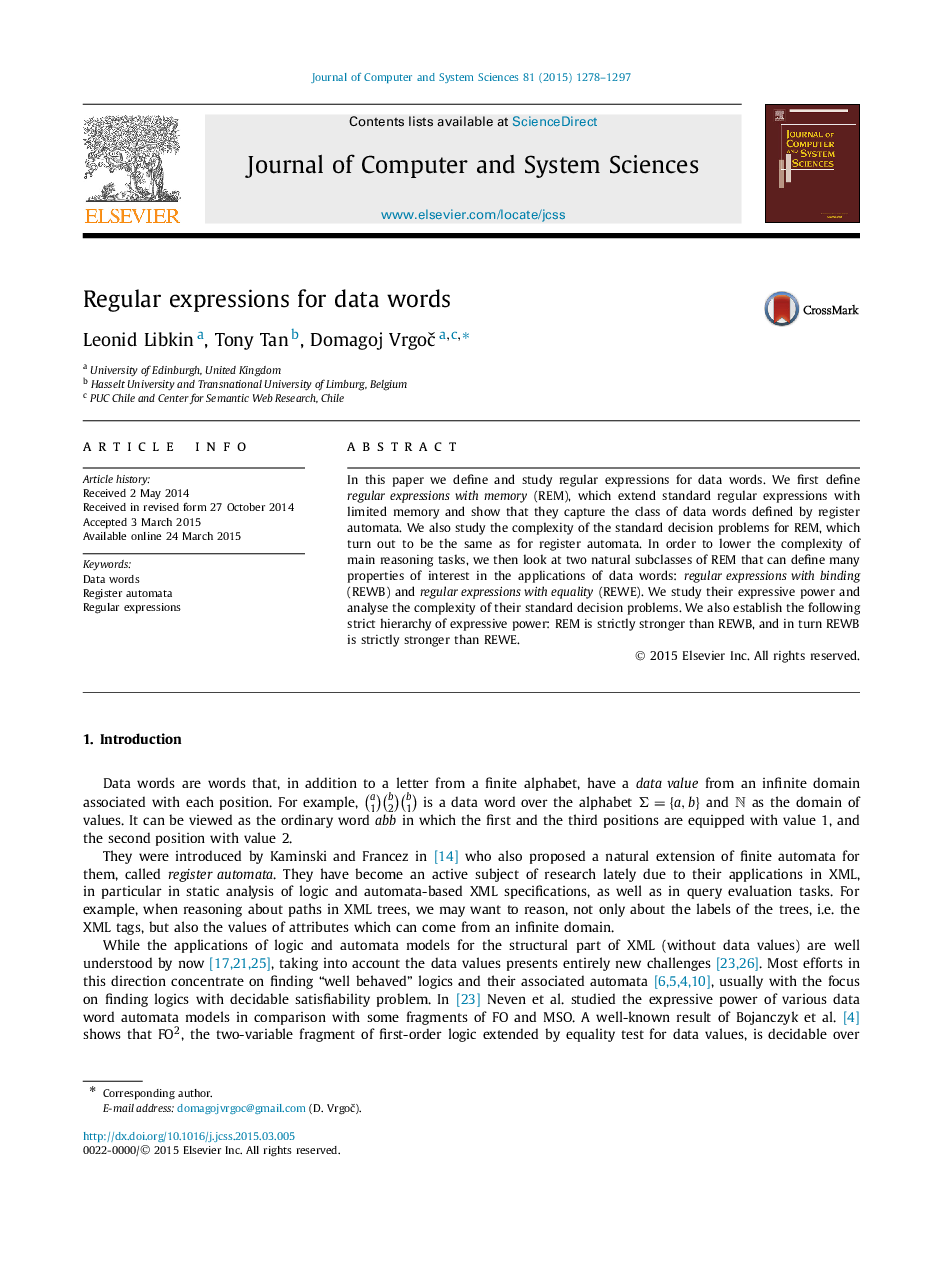| Article ID | Journal | Published Year | Pages | File Type |
|---|---|---|---|---|
| 429984 | Journal of Computer and System Sciences | 2015 | 20 Pages |
•Several classes of regular expressions for defining data word languages are introduced.•We show what is needed to capture the notion of regularity over data words.•We give a detailed overview of closure properties for introduced classes.•We study the complexity of main reasoning tasks for introduced classes.
In this paper we define and study regular expressions for data words. We first define regular expressions with memory (REM), which extend standard regular expressions with limited memory and show that they capture the class of data words defined by register automata. We also study the complexity of the standard decision problems for REM, which turn out to be the same as for register automata. In order to lower the complexity of main reasoning tasks, we then look at two natural subclasses of REM that can define many properties of interest in the applications of data words: regular expressions with binding (REWB) and regular expressions with equality (REWE). We study their expressive power and analyse the complexity of their standard decision problems. We also establish the following strict hierarchy of expressive power: REM is strictly stronger than REWB, and in turn REWB is strictly stronger than REWE.
